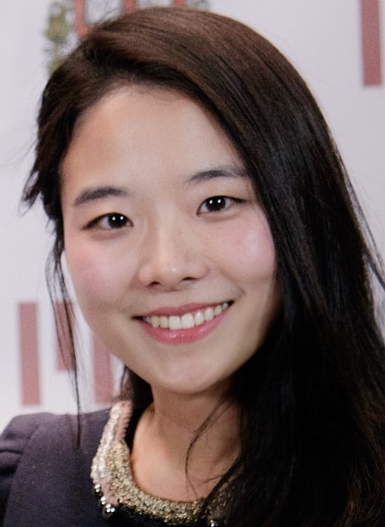
Hyo Jin Moon
4th Year Doctoral Student, Sacred Music
School of Music, Theatre & Dance
Being your best DEI self: Think of a time when you were at your best at advancing diversity, equity, and inclusion. What happened? Who was there? Why did you feel at your best?
During the pandemic and racial injustices of 2020, I continued to strive to advocate for diversity, equity, and inclusion through my dissertation recitals and student organizing. When I was growing up in South Korea, I didn’t encounter ideas about diversifying classical music. Most of the concerts that I visited featured Western classical music that were composed and conducted by white men. Therefore, I unintentionally looked at classical music only through the lens of the European musical tradition, while neglecting other possible perspectives. After I came to U-M, I attended carillon recitals that featured a wide-ranging repertoire to celebrate and acknowledge various ethnic and marginalized groups on campus, including concerts to celebrate the heritage months of Native Americans, Hispanics, and women. I was stunned by the power of a diversified repertoire that embraced and engaged with various communities of audiences on campus. That inspired me to pursue diversity, equity, and inclusion in my music making.
I programmed diverse repertoire for my weekly carillon recitals and my organ and carillon dissertation recitals, turning the spotlight on works by women and people of color. My dissertation organ recital included works by living women composers. For my dissertation carillon recital, I went a step further and focused on women of color, including Asian women and the first commissioned African American composer, Jessie Montgomery. This approach required more research and interpretation, but it transformed my previously unquestioned repertoire of mostly white male composers into a more dynamic, colorful, inclusive, and meaningful repertoire. This experience gave me joy and hope that my performing career will contribute to making less-represented works more visible and audible to wider audiences in churches, concert halls, campuses, and public squares, where the carillon in particular has the power to reach everybody. My upcoming student organizing collaboration Carillon Guild x MESA will, I hope, bring diverse carillon music directly to students who have assumed that the carillon wouldn’t speak to their identities.
My professors, Drs. James Kibbie and Tiffany Ng, supported my diversity advocacy throughout my dissertation process. Their mentorship highlighted three areas: achieving artistic excellence, cultivating my leadership skills, and engaging with the diverse communities through interdisciplinary collaboration, partnering with DEI organizations, and questioning my own assumptions about how to reach and effectively serve historically underserved listeners.
Wishes for the future: How would you imagine your environment needing to be for you to feel that you don’t have to do DEI work anymore?
I envision concert halls and neighborhoods with carillons to be inclusive and equitable spaces for all listeners regardless of their racial, gender, and social class background. In this ideal future, each student would be able to share their cultural voices and unique experiences with their communities through performance.
What does it mean to you to be a recipient of the MLK Spirit Awards?
